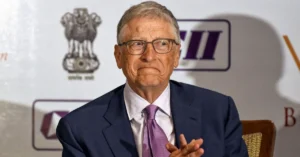Adobe general counsel Dana Rao in an interview with The Verge last week discussed why the acquisition deal of Figma by Adobe collapsed – as Adobe could not prove to European regulators that the acquisition wouldn’t harm competition in the future – meaning that Adobe or Figma wouldn’t do anything to compete with one another.
According to The Verge, Last month, both EU and UK regulators threw up major flags about the competition issue. The European Commission (EC) said that the deal could “significantly reduce competition in the global markets,” and a week later, the Competition and Markets Authority (CMA) effectively blocked the deal, provisionally concluding that it would “likely harm innovation for software used by the vast majority of UK digital designers.”
Dana claimed that neither Adobe nor Figma were competing. He said that Adobe’s closest product to Figma i.e. Adobe XD is a failed product and there was no overlap between the customers of the two products.
“We tried and failed with our tool,” said Rao. Adobe felt that there wasn’t “any overlap between” customers of the two companies and that there were “no competitor or customer complaints about the deal,” according to Rao. (Although designers who use Figma might disagree.)
Rao said that regulators had “been very focused” on newer doctrines of antitrust law that “say that future competition is a critical part of the antitrust analysis.” Following the public statements from the EC and CMA, “we got together with Figma and just said, ‘Looking at the road ahead and the timing and the tenor of the conversations we’re having, this is probably a good time to stop,'” Rao says.
Rao concluded that to solve the competition issue, the only option is to cancel the deal.
“The only way to solve a future competition issue, that someone might do something, is to not do the deal,” Rao says. “That’s essentially what they were telling us.” Rao concluded







Oh, what a bummer! 😟 I was really looking forward to the Adobe and Figma deal. The potential collaboration between these giants could have been groundbreaking. Wonder what went wrong behind the scenes. Fingers crossed for future partnerships that could still shake up the design world. Thanks for keeping us in the loop!